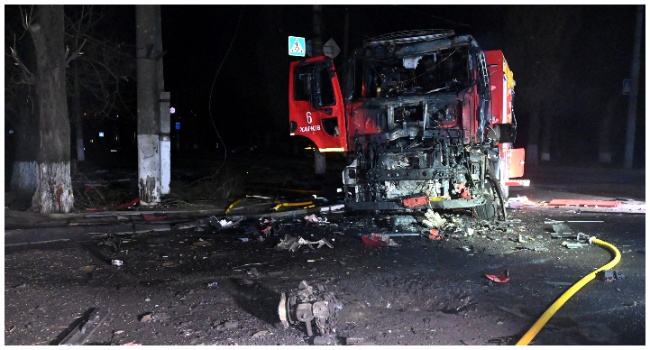A station close to the Mayak nuclear facility in the Chelyabinsk region detected “extremely high pollution” of the radioactive isotope Ru-106, Russian meteorologists said Monday.
But a representative of Rosatom nuclear corporation told AFP “there have been no incidents at nuclear infrastructure facilities in Russia,” adding that the concentration detected posed little threat.
The Mayak facility in the southern Urals, which is under Rosatom’s umbrella, also said the contamination “has nothing to do with Mayak’s activities”.
The facility, which reprocesses nuclear fuel, said it has not produced Ru-106 for many years.
And it said the level detected “poses no danger to human health and lives” as it is 20,000 times smaller than the “allowed annual dose.”
Mayak was the site of one of the worst nuclear disasters in history in 1957.
In what is known as the Kyshtym disaster, an explosion at Mayak broke a container holding radioactive waste, prompting the evacuation of nearly 13,000 people from the area.
– Consumer watchdog unconcerned –
Russia’s consumer watchdog Rospotrebnadzor also said the levels registered by the weather service were safe, giving a different figure of “200 times below” a level that would be considered unacceptable.
The highest concentration registered by the weather service was near the town of Argayash located about 20 kilometres from Mayak, and Greenpeace on Monday pointed to the facility as the likely culprit.
“An emergency discharge of ruthenium could be connected with the process of nuclear waste vitrification,” the Russian arm of the NGO said.
“Another possibility is that materials containing ruthenium-106 were placed in a metal remelting furnace. Both these activities take place in the Rosatom complex at Mayak.”
Ruthenium-106, which is produced by splitting atoms in a reactor, is used in certain medical treatments. It does not occur naturally.
– ‘Very high’ exposure –
National weather service chief Rosgidromet Maksim Yakovenko also said the concentration detected “poses no danger to population’s health”, adding that it was not the organisation’s job to detect the source.
On November 9, France’s Institute for Radioprotection and Nuclear Safety (IRSN) issued a report saying ruthenium-106 had been detected in France between September 27 and October 13.
It said that the source of the pollution was probably an accident somewhere between the Volga River and the Ural Mountains, adding that the concentrations measured in Europe were not a danger to public health.
It added that the quantity of Ru-106 at the suspected release site was “between 100 and 300 teraBecquerels” which is “very high” and in France would have led to measures to protect the population in the area.
Speaking to AFP, Jean-Marc Peres, a deputy director of IRSN, said the contamination was not consistent with a leak from a power plant or a satellite, but was more than likely to have come from “a treatment plant for liquid effluent of spent fuel.”
The ruthenium could escape in the form of a gas in the event of a malfunction in the facility’s cooling system, he said, adding that the institute was not pointing the finger at Mayak.
“For us, there is uncertainty about the facility, but the area (where the contamination occurred) is certain,” he said.
Asked about the incident, a regional official on Tuesday suggested that the IRSN wanted to discredit Mayak in order to boost France’s own nuclear processing industry.
“The source of this planted information was in France where there is a facility that is a competitor of our Mayak that processes nuclear waste,” regional public safety minister Yevgeny Savchenko told the Ura.ru news website.
“That makes you think.”
Read Also: Putin Hosts Assad Ahead Of Syria Talks With Turkey, Iran
AFP




